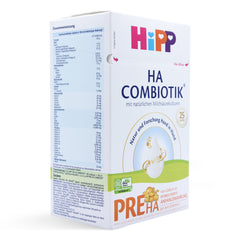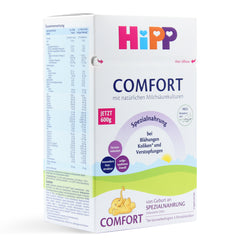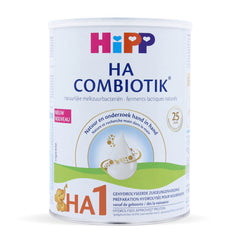Baby Formula Recalls in 2025: Essential Information for Concerned Parents
The empty grocery store shelves tell a terrifying story. Another infant formula recalls announcements flashes across your phone screen, and panic sets in. Is the formula you just fed your baby safe? Which brands should you avoid? The anxiety is overwhelming when your child's health depends on products that keep disappearing from stores.
Recall infant formula incidents have become increasingly common, leaving parents scrambling for answers and alternatives. Manufacturing contamination, labeling errors, and safety violations continue to threaten the products you trust most. Your baby's nutrition shouldn't be a gamble, yet navigating these recalls feels like walking through a minefield.
Understanding current recall information isn't just helpful — it's essential for protecting your little one from potentially dangerous products while ensuring they receive proper nutrition.
What Causes Baby Formula Recalls? Common Reasons Behind Recalls
Baby formula serves as a primary nutrition source for many infants, making safety absolutely critical. Parents must understand why recalls happen to better protect their babies from potential health risks. Formula recalls occur for specific reasons that pose serious threats to infant safety.
Understanding recall causes helps parents improve safety measures and make informed decisions. Here are the main reasons behind baby formula recalls:
-
Contamination. Bacterial contamination is the most serious cause of formula recalls. Formulas containing harmful bacteria like Salmonella or Cronobacter are immediately recalled due to dangerous composition. Contamination can cause severe illness, hospitalization, and even death in infants. These bacteria pose particularly serious threats to newborns and premature babies.
-
Incorrect Labeling. Labeling errors include wrong nutritional information, incorrect preparation instructions, or inaccurate dosage guidelines. Proper labeling must meet quality standards and undergo thorough verification. Incorrect labeling leads to improper feeding, which carries significant health risks. Missing allergen warnings or ingredient information creates serious safety concerns, as seen in recent Enfamil recalls.
-
Quality Control Problems. Manufacturing issues represent another major cause of formula recalls. Expired products, incorrect ingredient ratios, and contaminated raw materials create substantial health risks. Wrong levels of essential nutrients can seriously impact infant development and health. Compliance with strict manufacturing standards is every formula manufacturer's responsibility. Any packaging defects or foreign materials require immediate product removal.
Regulatory authorities like the FDA monitor all infant formula products continuously. These agencies test products for heavy metals, bacterial contamination, and manufacturing quality. When specific problems are identified, emergency recalls on baby formula are implemented immediately. Regulatory bodies work tirelessly to prevent harm and enforce strict safety regulations for infant nutrition.
How to Identify If Your Baby's Formula Has Been Recalled
High-quality European formula brands undergo rigorous testing by regulatory authorities and meet strict international safety requirements. These products are developed according to government standards and safety norms. Organic composition and premium ingredients are essential for infant health and proper development.
Unfortunately, even reputable brands sometimes face recall situations due to unforeseen safety concerns. Understanding baby formula recall list causes and consequences helps parents protect their children effectively. Parents must know how to check recall lists and monitor safety notifications properly.
Here's what parents need to understand when evaluating formula safety:
-
Check Batch Numbers Carefully. The most important step is examining your formula's batch number and comparing it to official recall notices. Batch numbers must match official safety data and quality notifications. This helps parents determine whether their specific formula has been recalled or affected.
-
Monitor Expiration Dates. Always verify and monitor expiration dates carefully for safety. Manufacturers clearly indicate "use by" or expiration dates on all packaging. Using expired formula poses serious health risks that can be easily avoided.
-
Follow Official Brand Announcements. In 2025, major brands publish recall information on their official websites and communication channels. Parents should regularly check manufacturer websites and FDA recall databases for updates.
-
Subscribe to Safety Alerts. Many regulatory agencies and manufacturers offer email or text alerts for immediate recall notifications. This ensures parents receive timely information about potential safety issues affecting their chosen brands.
Symptoms and Risks of Feeding Your Baby Recalled or Spoiled Formula

Feeding recalled or contaminated formula can cause serious health problems in infants. Parents who prioritize their babies' health must recognize warning signs and symptoms quickly. Various symptoms may appear in children who consume contaminated formula, and these can be dangerous for long-term health.
Understanding potential risks and knowing when to seek medical attention can prevent serious complications. Here are the potential risks and symptoms of baby drinking spoiled formula:
-
Digestive Disorders. Digestive problems are common symptoms when babies consume contaminated formula. The child may experience persistent vomiting, diarrhea, excessive gas formation, and uncomfortable bloating. These symptoms are dangerous because they can lead to dehydration and nutritional deficiencies requiring immediate medical attention.
-
Dehydration. Dehydration is a serious symptom characterized by dry mouth, lips, and decreased urination. The child becomes consistently fussy, refuses to eat properly, and produces fewer wet diapers than normal. Severe dehydration requires immediate medical intervention to prevent complications.
-
Fever. Fever is a severe symptom accompanied by high temperature and excessive crying. The child feels uncomfortable, cannot be easily soothed, and experiences restless sleep patterns throughout the day. Persistent fever in infants always requires immediate medical evaluation and treatment.
-
Skin Changes. Skin symptoms include rash, hives, and redness appearing on the neck, chest, and face. The child may appear pale, develop unexplained rashes, or show signs of allergic reactions. These symptoms often indicate formula intolerance or contamination issues.
-
Bacterial Infection. Consuming recalled formula poses serious threats due to potential bacterial infection. The child may completely refuse to eat, develop high fevers, and show signs of severe illness. Bacterial infections can lead to sepsis and other life-threatening complications requiring hospitalization.
Feeding contaminated formula can cause numerous serious health problems for babies. Health risks are often associated with gastrointestinal infections that can develop into sepsis. If parents suspect their child has consumed infant formula recall, immediate pediatric consultation is essential. Formula recall issues are top priorities for maintaining infant safety and health.
What to Do If You Discover Your Baby's Formula Has Been Recalled
Discovering that your baby's formula has been recalled 2025 can be frightening for any parent. Taking proper action quickly helps ensure your baby's safety and prevents potential health complications. The right steps will help you safely dispose of the formula and protect your infant. Here's what's essential to if you noticed recall baby formula:
-
Stop using it immediately and check batch numbers.
-
Contact your pediatrician to report the situation and assess any symptoms.
-
Document the product by photographing packaging and batch information, then report to the manufacturer and FDA.
-
Dispose safely by sealing in airtight bags before disposal.
-
Contact the brand for refunds or replacements.
-
Choose trusted alternatives like HiPP that maintain high safety standards, introducing new formulas gradually to help your baby adjust.
Overview of Major Baby Formula Recalls in Recent Years (Including 2023)

Baby formula recalls in 2025 have heightened parents' awareness about product quality and manufacturing safety. Starting in 2023, several major brands and their products have faced serious recalls due to contamination and safety concerns. These recalls involved popular brands that failed to meet strict safety standards and regulations.
The formula recalls caused significant shortages in the baby formula market nationwide. Parents who know "what formula has been recalled?" can choose the best one and begin purchasing alternative formulas and hypoallergenic options, leading to supply chain disruptions. The shortage particularly affected families relying on specific formula types for medical reasons or special dietary needs.
After these major recall situations, starting in 2023, parents began considering European quality alternatives. Many European products offer superior quality standards and stricter manufacturing processes for babies. Parents looking for safer options often turn to brands like HiPP HA PRE Formula for babies. This formula works best for babies from birth and contains reduced lactose content that improves digestion.
The baby milk recall issues have prompted government agencies to enhance oversight dramatically. Regulatory authorities have become more vigilant in checking formula composition and labeling accuracy. Companies have introduced comprehensive systems for tracking and monitoring baby formula quality continuously. These improvements have helped achieve higher safety standards for parents and babies nationwide.
How Manufacturers and Regulators Improve Formula Safety Post-Recall
Many manufacturers prioritize their products and implement comprehensive quality control measures to prevent future recalls. Companies focus on continuous environmental monitoring throughout their production processes. Using high-quality raw materials and maintaining strict composition standards are essential manufacturing practices.
Tracking batches by numbers and implementing strict delivery control systems are equally important safety measures. Third-party testing organizations also investigate product quality issues to provide peace of mind for parents. Frequent facility inspections are now leading industry standards in accordance with updated US regulations. Enhanced safety measures include:
-
Improved Testing Procedures. Independent testing organizations conduct more frequent and comprehensive quality assessments than ever before. These evaluations provide additional safety assurance for parents and regulatory agencies.
-
Stricter Regulatory Compliance. Under new regulations, manufacturers must immediately notify authorities about any contamination or potential safety concerns. Authorities maintain detailed records of testing attempts and continuously develop improved testing methods.
-
Enhanced Traceability Systems. Modern batch tracking systems allow for quick identification and removal of potentially contaminated products. This improved traceability helps prevent widespread distribution of unsafe formulas.
-
Increased Transparency. Companies now provide detailed information about their manufacturing processes and safety procedures. This transparency helps parents make informed decisions about formula selection and brand trust.
Parents who understand formula recall list procedures can choose the best formulas independently and confidently. These safety improvements increase peace of mind and protection for babies while requiring parents to remain vigilant about checking labels and staying informed.
How to Stay Updated on Infant Formula Recalls in 2025 and Beyond

In 2025, formula recalls have made parents more responsible and aware about product quality and safety. Everyone should be accountable for monitoring the health and safety of their babies through reliable information sources. Trusted resources help track recalled baby formulas and maintain transparency about product safety. Reliable monitoring resources include:
-
FDA Websites. FDA websites are the most reliable sources for monitoring formula recalls and safety information. The regulatory agency maintains comprehensive recall pages highlighting all necessary data about affected products. Parents can search for recalled formulas by brand names, batch numbers, or specific product types.
-
Brand Notifications. Reputable brands announce recall notifications through their official websites and customer communication channels. Reliable manufacturers update recall information regularly to ensure parents receive timely safety updates. Companies provide detailed information about affected batches and recommended actions.
-
Parent Community Forums. Special parent forum pages help families share information about high-quality and safe formulas. These communities provide valuable insights and real-world experiences with different brands and products.
-
Healthcare Provider Resources. Pediatricians and healthcare providers often receive early notifications about formula recalls and safety concerns. Building relationships with medical professionals provides additional safety monitoring and guidance.
Formula recalls have given parents opportunities to improve baby safety through better information access. The right responsible attitude helps ensure baby safety and provides constant quality control. Today, baby formula recalls are popular discussion topics among parents, making informed monitoring essential for infant health.
Final Tips for Parents: Ensuring Your Baby's Formula Is Safe and Healthy
Recalled baby formula incidents serve as crucial reminders that vigilance is essential for protecting your baby's health. While recall on formula situations can be frightening, informed parents can navigate these challenges successfully by staying updated and choosing trusted sources.
The key to formula safety lies in proactive monitoring, understanding recall procedures, and selecting high-quality products from reputable manufacturers. Always check batch numbers, subscribe to safety alerts, and maintain open communication with your pediatrician about any concerns.
At Organic Life Start, we understand the anxiety that formula recalls create for parents. As a company founded by 8 experienced mothers, we've personally navigated these same fears and uncertainties. That's why we exclusively offer premium European formulas that meet the highest safety standards and undergo rigorous testing.
Our carefully curated selection includes trusted brands like HiPP, which maintains exceptional quality control and transparency. We believe every parent deserves peace of mind when feeding their baby, which is why we only partner with manufacturers who prioritize safety above all else. Trust us to provide reliable, safe nutrition for your little one.
Organic Life Start is committed to providing accurate, reliable, and trustworthy information to parents and caregivers. We carefully choose credible sources and follow a meticulous fact-checking process to uphold the highest standards in infant nutrition and parenting advice. To learn more about our dedication to accuracy, please explore our editorial guidelines.
Link To Sources










